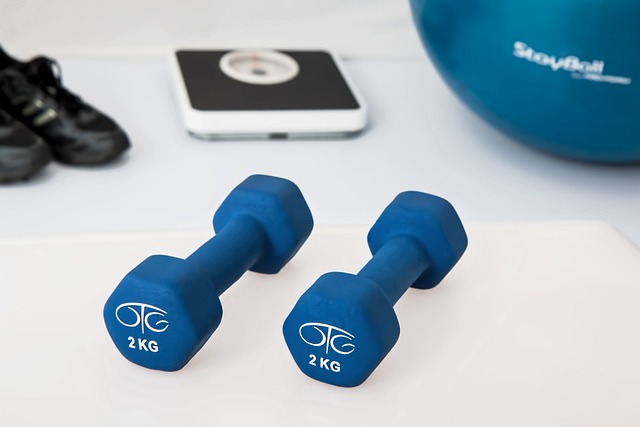
The Science Behind Exercise Reducing Symptoms of Depression: The Connection Between Physical Activity and Mental Health
Depression, a prevalent mental health disorder, affects millions of people worldwide. It is characterized by persistent feelings of sadness, loss of interest in activities, and various physical and emotional problems. While traditional treatments such as medication and therapy are commonly prescribed, an increasing body of research highlights the significant role of exercise in alleviating symptoms of depression.
The content provided below delves into the scientific mechanisms by which physical activity promotes mental stability and reduces depressive symptoms, underscoring the importance of a healthy lifestyle for mental well-being.
The Biological Mechanisms
- Neurotransmitter Regulation
Exercise influences the levels of several key neurotransmitters in the brain, including serotonin, dopamine, and norepinephrine. These chemicals play crucial roles in mood regulation and overall mental health.
- Serotonin: Often dubbed the “feel-good” neurotransmitter, serotonin levels are typically lower in individuals with depression. Exercise increases the availability of tryptophan, a precursor to serotonin, thereby enhancing serotonin production and improving mood.
- Dopamine: Associated with the brain’s reward system, dopamine levels can be boosted through physical activity. This increase enhances feelings of pleasure and motivation, counteracting the apathy and lethargy commonly seen in depression.
- Norepinephrine: This neurotransmitter is linked to arousal and alertness. Exercise raises norepinephrine levels, helping to reduce the cognitive and physical fatigue associated with depression.
- Endorphin Release
Endorphins, often referred to as the body’s natural painkillers, are released during exercise. These peptides interact with the brain’s opiate receptors, reducing the perception of pain and triggering a positive feeling in the body, similar to that of morphine. The “runner’s high,” a euphoric sensation experienced after prolonged aerobic exercise, is a direct result of endorphin release.
- Brain-Derived Neurotrophic Factor (BDNF)
BDNF is a protein that supports the survival, development, and function of neurons. Regular physical activity increases BDNF levels, which promotes neurogenesis (the formation of new neurons) and synaptic plasticity (the ability of synapses to strengthen or weaken over time). These processes are crucial for learning, memory, and cognitive function, all of which can be impaired in depression.
- Inflammatory Markers
Depression has been linked to increased levels of pro-inflammatory cytokines, which can affect brain function. Exercise has anti-inflammatory effects, reducing the levels of these cytokines and thereby mitigating their impact on the brain. This reduction in inflammation is associated with improvements in mood and cognitive function.
Psychological and Social Benefits
- Stress Reduction
Exercise acts as a natural stress reliever. Physical activity reduces the levels of cortisol, the body’s primary stress hormone. Lower cortisol levels help mitigate the negative effects of stress on the body and mind, which can be particularly beneficial for individuals with depression.
- Improved Sleep
Regular exercise promotes better sleep quality and duration, which is often disrupted in individuals with depression. Adequate sleep is essential for emotional regulation and cognitive function, contributing to overall mental stability.
- Boost in Self-Esteem and Confidence
Achieving fitness goals and improving physical health can enhance self-esteem and confidence. These psychological benefits are particularly important for individuals with depression, who often struggle with low self-worth and feelings of helplessness.
- Social Interaction
Many forms of exercise, such as team sports or group fitness classes, provide opportunities for social interaction. Building social connections can alleviate feelings of isolation and loneliness, which are common in depression. Engaging in shared activities fosters a sense of community and belonging, further supporting mental health.
Practical Implications
- Types of Exercise
Various types of exercise can be beneficial for reducing symptoms of depression, including aerobic activities (e.g., walking, running, cycling), resistance training (e.g., weightlifting), and mind-body exercises (e.g., yoga, tai chi). The key is to find an enjoyable and sustainable form of physical activity.
- Exercise Prescription
While the optimal amount of exercise can vary, general guidelines suggest aiming for at least 150 minutes of moderate-intensity aerobic activity or 75 minutes of vigorous-intensity activity per week, combined with muscle-strengthening activities on two or more days per week. Starting with small, manageable goals and gradually increasing intensity and duration can help individuals build a consistent exercise routine.
- Integration with Traditional Treatments
Exercise should be viewed as a complementary approach rather than a replacement for traditional depression treatments. Combining physical activity with medication, psychotherapy, and other therapeutic interventions can provide a more comprehensive treatment plan, tailored to the individual’s needs.
The scientific evidence supporting the role of exercise in reducing symptoms of depression is compelling. Through a combination of biological, psychological, and social mechanisms, regular physical activity promotes mental stability and enhances overall well-being.
Adopting a healthy lifestyle that includes regular exercise not only enhances physical health but also plays a crucial role in combating depression. Encouraging people to integrate physical activity into their daily lives can lead to notable improvements in mood, cognitive function, and overall quality of life. It’s essential to recognize that the connection between mind and body has transformed our understanding of their interdependence; mental and physical health cannot be separated if one aims to live a fulfilling life. One cannot achieve optimal mental health without physical well-being and vice versa, as they are mutually reliant.
We must strive for balance in our lives, recognizing that neglecting one aspect will inevitably impact the other. To achieve remarkable outcomes, both mental and physical health must receive equal attention, regardless of individual perceptions of their importance. Taking care of both body and mind is crucial, as they are the only “vehicles” we have for our life’s journey.

dr.dan
Related Posts
The Science Behind Exercise Reducing Symptoms of Depression: The Connection Between Physical Activity and Mental Health
Depression, a prevalent mental health disorder, affects millions of people...
Things That You Need To Know About Depresion
What You Should Know About Depression - Depression is a mental health disorder...
The challenges of Baby-boomers generation: Is post-retirement depression real? Strategies to reduce symptoms of depression and find purpose again.
The Baby Boomer generation, born between 1946 and 1964, has experienced...
Understanding the difference between chronic depression and seasonal depression: When is it a good time to schedule a session with a professional mental health provider and what are the possible symptoms differentiating both types of depression!
Depression is a multifaceted mental health issue that impacts millions...




